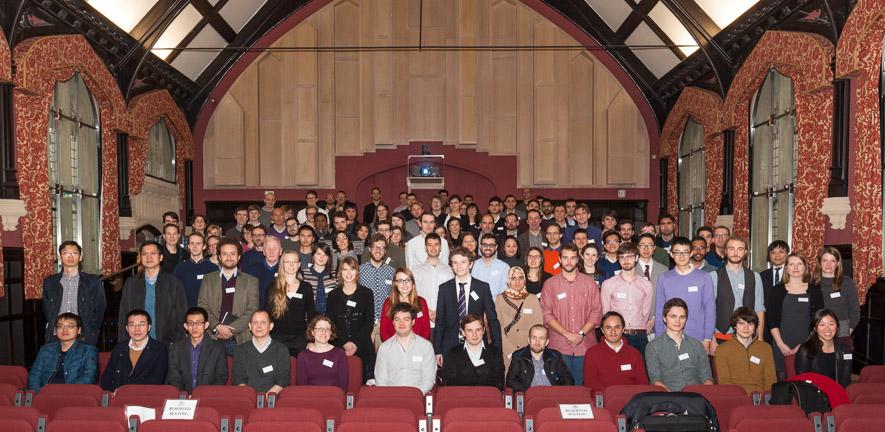
The symposium presented an opportunity to hear about the latest advances in solar-driven fuels research, and for interactions amongst the rapidly expanding network of researchers in the UK. 120 delegates from across the UK and abroad heard 12 speakers discuss recent research milestones and views on the direction of solar fuels.
Erwin Reisner’s research group in the department focuses on developing novel photocatalytic systems, by combining homogeneous synthetic catalysts and enzymes with light-absorbing and - often - nanostructured semiconductor materials. Dr Reisner co-chaired the conference with Dr Junwang Tang, whose research at University College London involves solar fuels synthesis by inorganic photocatalysis, CO2 storage & conversion, and related areas.
The overall research challenge is to develop materials and technologies that can harness and convert the sun’s energy into renewable fuels. SFN Director, Professor James Durrant said, “Plants use photosynthesis to directly convert sunlight to fuels. They do this very well but they didn’t develop for our needs. There have been many advances in solar energy generation but the Holy Grail, as it were, is understanding how to store and transport the energy of sunlight in chemical bonds.”
The SFN host this symposium yearly at different institutions across the UK. Funded by the EPSRC, the SFN aims to develop and raise the profile of solar fuels research, and promote collaboration and cooperation with other research disciplines, industry and international solar fuels programmes. It also encourages the involvement of young UK researchers in this field. Dame Mary Archer, who attended the conference, said, “It’s good to see a new young generation engaging with the problems in a fresh way.”
A poster session showcased the work of 32 PhD students and early career researchers working on solar fuels.

